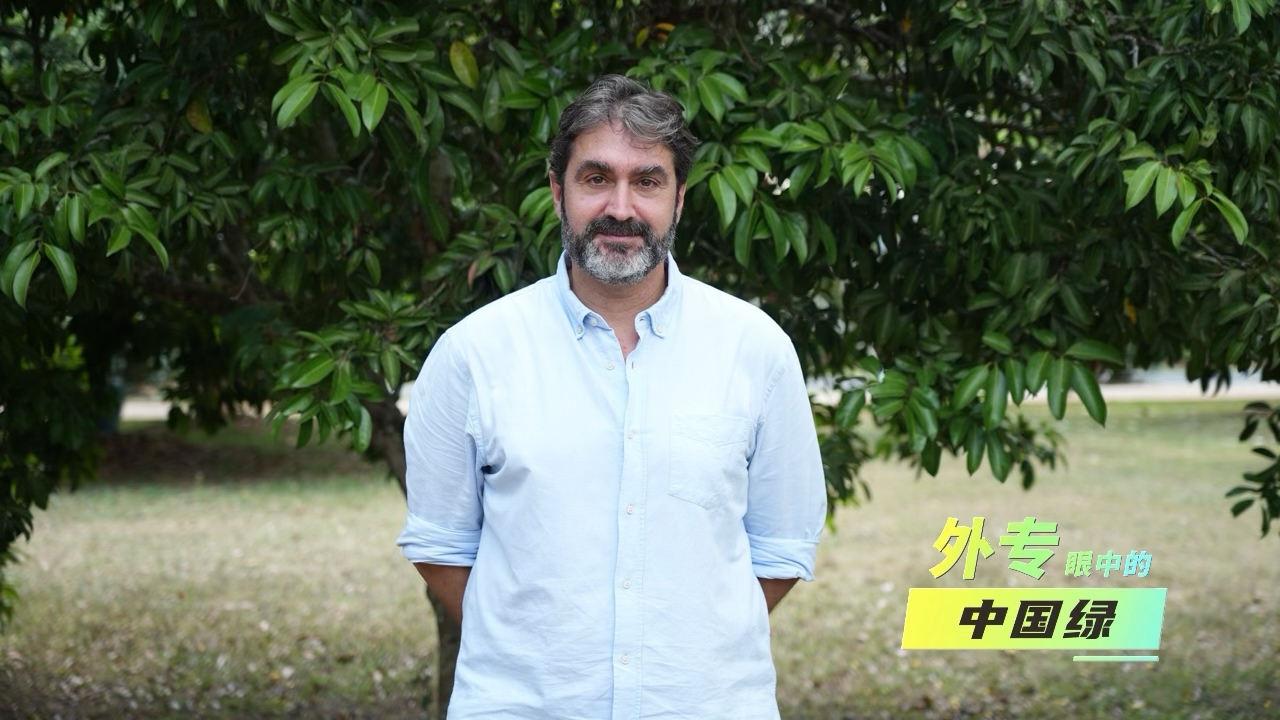
Ahimsa Campos-Arceiz. (PHOTO: Science and Technology Daily)
By?CHEN?Chunyou?&?BI?Weizi
As we think about development, the only way we can develop in a sustainable way is by keeping the ecology in mind. Thanks to green development policies, we will be able to protect more habitats and achieve the dual objective of having more development and more conservation, elephant expert Ahimsa Campos-Arceiz told Science and Technology Daily in a recent interview.
Campos-Arceiz is a principal investigator at the Xishuangbanna Tropical Botanical Garden under the aegis of the Chinese Academy of Sciences in Yunnan province, southwest China. He is a big fan of Yunnan and chose to work in the province in 2020. As an elephant expert and researcher, he likes traveling around Yunnan to observe elephant conservation firsthand.
Elephants, considered engineers of the ecosystem, are vital for maintaining its stability. As they travel, they trample plants, creating living space for other fauna and flora. Simultaneously, they help disperse the seeds of the plants whose fruits they consume, carrying them to distant places.
"Xishuangbanna is doing a very good job with the Xishuangbanna National Nature Reserve, where the elephant population has doubled in the past 25 years or so. That's a very good example of conservation success," Campos-Arceiz said.
Recently he visited Cangyuan, a county in Yunnan's Lincang prefecture, and was greatly impressed. He witnessed a very positive relationship between the small elephant population there and the local people.
"Human-elephant interaction is very unique and interesting. For thousands of years, people have lived close to elephants. Sometimes, elephants don't stay in the forest, but come close to (human) neighborhood and crops. If we understand elephant behavior, it will be helpful to prevent potential damage and improve conservation," he said.
"China plays an active role internationally. Through the Belt and Road Initiative, China is helping develop infrastructure in other countries. I think this could be used not only for development but also for conservation," he added.
China can promote protected areas and good ecological management in neighboring countries. For example, Xishuangbanna, which borders both Myanmar and Laos, is developing collaborations with these two countries for joint monitoring and protection. "This is a very good example of transboundary cooperation," Campos-Arceiz pointed out.
Yunnan has stepped up efforts to build the Xishuangbanna Asian Elephant National Park, which aims to upgrade the quality and impact of the protected areas. Campos-Arceiz called it a vivid practice of China's ecological civilization. "I have been very motivated to see how these values about ecology are inserted in other policies and bringing more changes to Yunnan and the whole country," he said.
The trio will conduct a series of experiments in fields such as life science, fluid physics, combustion science and materials science. Notably, this is the first time that fruit flies have been taken on a Chinese space mission as experimental subjects. What made scientists choose fruit flies? What experiment will they undergo?
